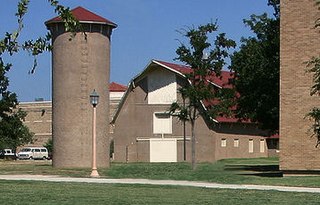Related Research Articles

A teacher, also called a schoolteacher or formally an educator, is a person who helps students to acquire knowledge, competence, or virtue, via the practice of teaching.

Keele University, officially known as the University of Keele, is a public research university in Keele, approximately three miles from Newcastle-under-Lyme, Staffordshire, England. Founded in 1949 as the University College of North Staffordshire, Keele was granted university status by Royal Charter in 1962.

Tes , formerly known as the Times Educational Supplement, is a British weekly trade magazine aimed at education professionals. It was first published in 1910 as a pull-out supplement in The Times newspaper. Such was its popularity that in 1914, the supplement became a separate publication selling for one penny.

The Geographical Association (GA) is an association in the United Kingdom. The organisation has a stated aim of improving geographical knowledge of the public through promoting geographical education.
A teacher-librarian or school librarian or school library media specialist (SLMS) is a certified librarian who also has training in teaching.
A teaching assistant, educational assistant or learning support assistant in schools in England and Wales is a person who supports pupils in the classroom. Duties can differ dramatically from school to school, though the underlying tasks often remain the same.

Outdoor education is organized learning that takes place in the outdoors, typically during school camping trips. Outdoor education programs sometimes involve residential or journey wilderness-based experiences in which students participate in a variety of adventurous challenges and outdoor activities such as hiking, climbing, canoeing, ropes courses and group games. Outdoor education draws upon the philosophy, theory, and practices of experiential education and environmental education.

Agricultural education is the systematic and organized teaching, instruction and training available to students, farmers or individuals interested in the science, business and technology of agriculture as well as the management of land, environment and natural resources/
Physics education or physics teaching refers to the education methods currently used to teach physics. The occupation is called physics educator or physics teacher. Physics education research refers to an area of pedagogical research that seeks to improve those methods. Historically, physics has been taught at the high school and college level primarily by the lecture method together with laboratory exercises aimed at verifying concepts taught in the lectures. These concepts are better understood when lectures are accompanied with demonstration, hand-on experiments, and questions that require students to ponder what will happen in an experiment and why. Students who participate in active learning for example with hands-on experiments learn through self-discovery. By trial and error they learn to change their preconceptions about phenomena in physics and discover the underlying concepts. Physics education is part of the broader area of science education.
Formative assessment, formative evaluation, formative feedback, or assessment for learning, including diagnostic testing, is a range of formal and informal assessment procedures conducted by teachers during the learning process in order to modify teaching and learning activities to improve student attainment. The goal of a formative assessment is to monitor student learning to provide ongoing feedback that can help students identify their strengths and weaknesses and target areas that need work. It also helps faculty recognize where students are struggling and address problems immediately. It typically involves qualitative feedback for both student and teacher that focuses on the details of content and performance. It is commonly contrasted with summative assessment, which seeks to monitor educational outcomes, often for purposes of external accountability.
Practice-based professional learning (PBPL) is understood in contrast to classroom- or theory-based learning. It is kindred to terms such as work-based learning, workplace or work-centred learning. Distinctive, though, are a concern for professional learning, and the preference for practice rather than work. While it does not disdain propositional knowledge and what is sometimes called theory, its prime interest is in the formation of self-renewing and effective professional practices—a distinct theoretical position in its own right.
Science Learning Centres are a UK government initiative to address the need for improved science education and development for teachers in England.

Techniquest is a science discovery centre located in Cardiff Bay, Wales. It gives visitors a hands-on approach to science and includes a science theatre, a planetarium, and an exhibition space with over 100 interactive exhibits aimed at visitors of all ages.
University of Gezira, or U of G, is a public university located in Wad Medani, Sudan. It is a member of the Federation of the Universities of the Islamic World.
E-scape was a project run by the Technology Education Research Unit (TERU) at Goldsmiths University of London, England that developed an approach to the authentic assessment of creativity and collaboration based on open-ended but structured activities. As such it is an alternative to traditional assessment methodologies.
Earth Learning Idea (ELI) provides free Earth-related teaching ideas, designed to be practical science and geography resources for secondary and primary teachers and teacher-trainers and trainees across the world. It is run on a voluntary basis by three teachers from the Earth Science Education Unit (ESEU).
The JCB Academy is a non-selective co-educational secondary school within the English University Technical College programme, in Rocester, Staffordshire, England. It specialises in engineering and business qualifications.
Mathematics education in the United Kingdom is largely carried out at ages 5–16 at primary school and secondary school. However voluntary Mathematics education in the UK takes place from 16 to 18, in sixth forms and other forms of further education. Whilst adults can study the subject at universities and higher education more widely. Mathematics education is not taught uniformly as exams and the syllabus vary across the countries of the United Kingdom, notably Scotland.

Educational management refers to the administration of the education system in which a group combines human and material resources to supervise, plan, strategise, and implement structures to execute an education system. Education is the equipping of knowledge, skills, values, beliefs, habits, and attitudes with learning experiences. The education system is an ecosystem of professionals in educational institutions, such as government ministries, unions, statutory boards, agencies, and schools. The education system consists of political heads, principals, teaching staff, non-teaching staff, administrative personnel and other educational professionals working together to enrich and enhance. At all levels of the educational ecosystem, management is required; management involves the planning, organising, implementation, review, evaluation, and integration of an institution.
Christopher John Henry King (1949–2022) also known as Chris King was a prominent British geologist and science educator known for his extensive work in geoscience education including contributions to international organizations like the International Union of Geological Sciences (IUGS) and the International Geoscience Education Organization (IGEO) and the European Geosciences Union.
References
- ↑ "Training Scheme Takes Earth-y Approach to Teaching Skills". Archived from the original on 2012-02-26. Retrieved 2010-07-23.
- ↑ "ESEU - Launching Into Wales"
- ↑ "OPITO Education activities". Archived from the original on 2011-07-21. Retrieved 2010-07-23.
- ↑ University, Keele. "Chris King". Keele University. Archived from the original on 2023-04-23. Retrieved 2023-04-23.
- ↑ King, Chris (September 2013). "Earth Science: It's All about the Processes". Primary Science. ISSN 0269-2465.
- ↑ "'Flash bang demos' steal the show"
- ↑ "Putting earth science teaching into its outdoor context" (PDF). Archived from the original (PDF) on 2008-08-29. Retrieved 2010-08-02.
- ↑ "The Earth Science Education Unit's professional development workshop on 'The Carbon Question – cycling, releasing, capturing' for teachers of Key Stages 3 and 4 (King)". www.ase.org.uk. 2022-01-28. Retrieved 2023-04-23.
- ↑ Parlamient UK (14 September 2011). "Written evidence submitted by the Earth Science Teachers' Association (Sch Sci 06)".
- ↑ "Can a single, short continuing professional development workshop cause change in the classroom?".
{{cite journal}}: Cite journal requires|journal=(help) - ↑ "ESEU Resources"
- ↑ University, Keele. "Christopher King". Keele University. Retrieved 2023-10-27.